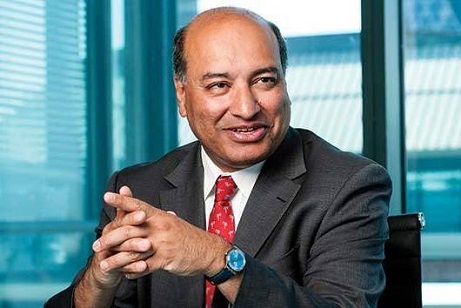EBRD President: “The EBRD invests for change in Georgia”

Georgia’s successful policies and reforms will be presented to the world at the 2015 European Bank for Reconstruction and Development (EBRD) Annual Meeting, held in Tbilisi next week.
On May 14 and 15 government officials, international business representatives, economists, financial experts and investors will attend the EBRD’s 24th Annual Meeting. This will be the first time the EBRD Annual Meeting is held in the Caucasus region.
Today EBRD president Suma Chakrabarti outlined why Georgia was chosen to host the 2015 EBRD Annual Meeting and how Georgia was the perfect example of this year’s theme – Investing for Change.
"Georgia is one of the most innovative of the more than 30 countries of operations where EBRD supports transition to free and open markets. And that’s allowed the EBRD to introduce new investment instruments in Georgia before bringing them to other countries in our regions,” he said.
Investment has been a positive force for change inGeorgia – and Georgia in turn has encouraged investors with its very successful policies and reforms.”
"It has certainly encouraged the EBRD: our total investment in Georgia now stands at €2.6 billion. And last year saw a record investment of €214 million across many sectors of the Georgian economy - from energy to small and medium-sized businesses,” said Chakrabarti.
Already this year the EBRD has co-financed the largest ever foreign direct investment project in the Georgian renewable energy sector – the Shuakhevi Hydro Power Plant.
"We launched a risk-sharing facility that allowed banks to lend in local currencies. Equity investment lines for small corporates, and a local currency financing facility for agribusiness firms, also started life in Georgia,” said the EBRD president.
"At the same time, we’re introducing innovations here which were pioneered elsewhere - such as a credit line for women entrepreneurs that is already popular in Turkey and the Balkans.”
Chakrabarti said innovation was not limited by borders and a good example of this was the "unprecedented boost in hydropower investments” brought about by the opening of the Turkish market. He noted the EBRD had co-financed the Black Sea Transmission Line – the first connection between the former Soviet electricity grid of the Caucasus and Turkey.
In Georgia, and in all the countries where we invest, we are working towards a more sustainable economic future by building stronger institutions, promoting regional integration and addressing global economic challenges,” he said.
The EBRD Annual Meeting is the most important event in the bank’s annual calendar. A central part is the meeting of the Board of Governors, the Bank’s highest decision-making body, who will assess the bank’s performance and set future strategic directions. This year the EBRD is seeking a mandate from shareholders to step up its response to persistent challenges in the transition economies that it serves.
This year’s EBRD Annual Meeting comes against a backdrop of continuing geopolitical tensions and economic uncertainty that are holding back the investments needed to raise living standards and prosperity across the societies of the EBRD regions.
During the two-day event, the EBRD’s economists will publish new economic forecasts for numerous countries -- which stretch from central and south eastern Europe, through to the Caucasus and Central Asia and to the southern and eastern Mediterranean.They will show that a return to growth across the regions as a whole "remains elusive” and that economic weakness in Russia is continuing to have an impact well beyond that country’s borders, said the EBRD on its website.
In Georgia, the EBRD focused on supporting private sector clients directly and via private banks; investing in energy sector projects which aim to increase production and access export markets; supporting the introduction of modern regulatory frameworks; and investing in infrastructure, logistics, telecommunications and the financial sector to support cross-border economic activities.
 Tweet
Tweet  Share
Share